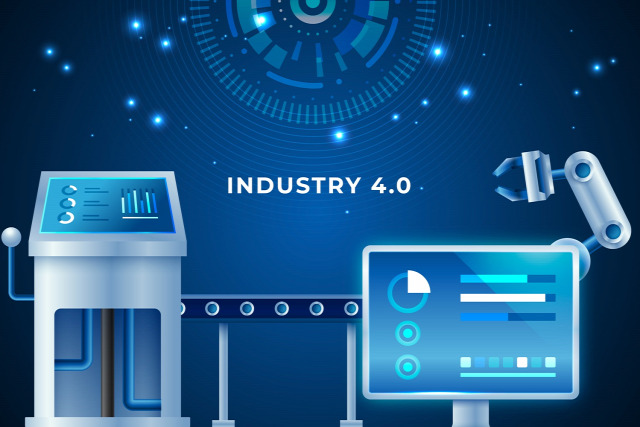
The manufacturing industry is undergoing a significant transformation with the advent of smart factory technologies, marking the era of Industry 4.0. Smart factories, characterized by their high levels of automation, connectivity, and data-driven decision-making, are reshaping production processes across the globe.
According to BIS Research, the Global Smart Factory and Manufacturing Market was valued at $64.64 billion in 2020, and it was expected to grow with a CAGR of 8.71% during the forecast period 2020-2025, reaching $105.12 billion by 2025. And it is still estimated that the market will further grow at the same pace by 2033.
Understanding Smart Factories
A smart factory integrates various advanced technologies to create an interconnected, intelligent manufacturing environment. Key components include:
-
Internet of Things (IoT): Connects machines, devices, and sensors to collect and exchange data.
-
Artificial Intelligence (AI) and Machine Learning: Analyzes data to optimize processes, predict maintenance needs, and enhance decision-making.
-
Robotics and Automation: Automates repetitive tasks, improves precision, and increases productivity.
-
Big Data and Analytics: Processes large volumes of data to provide insights for improving efficiency and quality.
-
Cyber-Physical Systems (CPS): Integrates physical processes with computational models to create a seamless interface between the physical and digital worlds.
-
Cloud Computing: Enables scalable data storage and processing, facilitating real-time analytics and remote monitoring.
Want to stay updated with the market? Request to Download for FREE the UPDATED version of the report for Global Smart Factory and Manufacturing Market Research.
Key Market Dynamics
Several factors are driving the growth of the global market of smart factory and manufacturing:
-
Technological Advancements: Continuous innovations in IoT, AI, robotics, and other technologies are enhancing the capabilities and efficiency of smart factories.
-
Demand for Operational Efficiency: Manufacturers are increasingly adopting smart factory solutions to reduce costs, improve productivity, and maintain a competitive edge.
-
Government Initiatives and Investments: Various governments are promoting Industry 4.0 initiatives, providing funding and support for smart manufacturing technologies.
-
Focus on Sustainability: Smart factories contribute to sustainable manufacturing by optimizing resource use, reducing waste, and minimizing environmental impact.
Global Smart Factory and Manufacturing Industry Segmentation
Segmentation by Technology:
-
Industrial IoT
-
AI and Machine Learning
-
Big Data and Analytics
-
Cloud Computing
Segmentation by Region:
-
North America
-
Europe
-
Asia-Pacific
-
Latin America
-
Middle East & Africa
Future Market Prospects
The future of the global smart factory and manufacturing market is promising, with several trends likely to shape its trajectory:
-
Expansion of IoT: Increasing adoption of IoT devices will enhance connectivity and data collection in smart factories.
-
AI and Machine Learning Advancements: Continued innovation in AI and machine learning will improve predictive maintenance, process optimization, and decision-making.
-
5G Technology: The deployment of 5G networks will enable faster data transmission and real-time communication, enhancing the capabilities of smart factories.
-
Sustainable Manufacturing: Growing focus on sustainability will drive the adoption of smart factory solutions that reduce environmental impact.
Conclusion
The Global Smart Factory and Manufacturing Industry is on the cusp of a transformative era, driven by technological advancements, increasing demand for operational efficiency, and a focus on sustainability. By addressing challenges related to implementation costs, integration, cybersecurity, and skill gaps, and leveraging opportunities in IoT expansion, AI advancements, and 5G technology, the potential of smart factories can be fully realized. This revolution in manufacturing promises to enhance productivity, flexibility, and sustainability, setting new standards for the industry worldwide.

